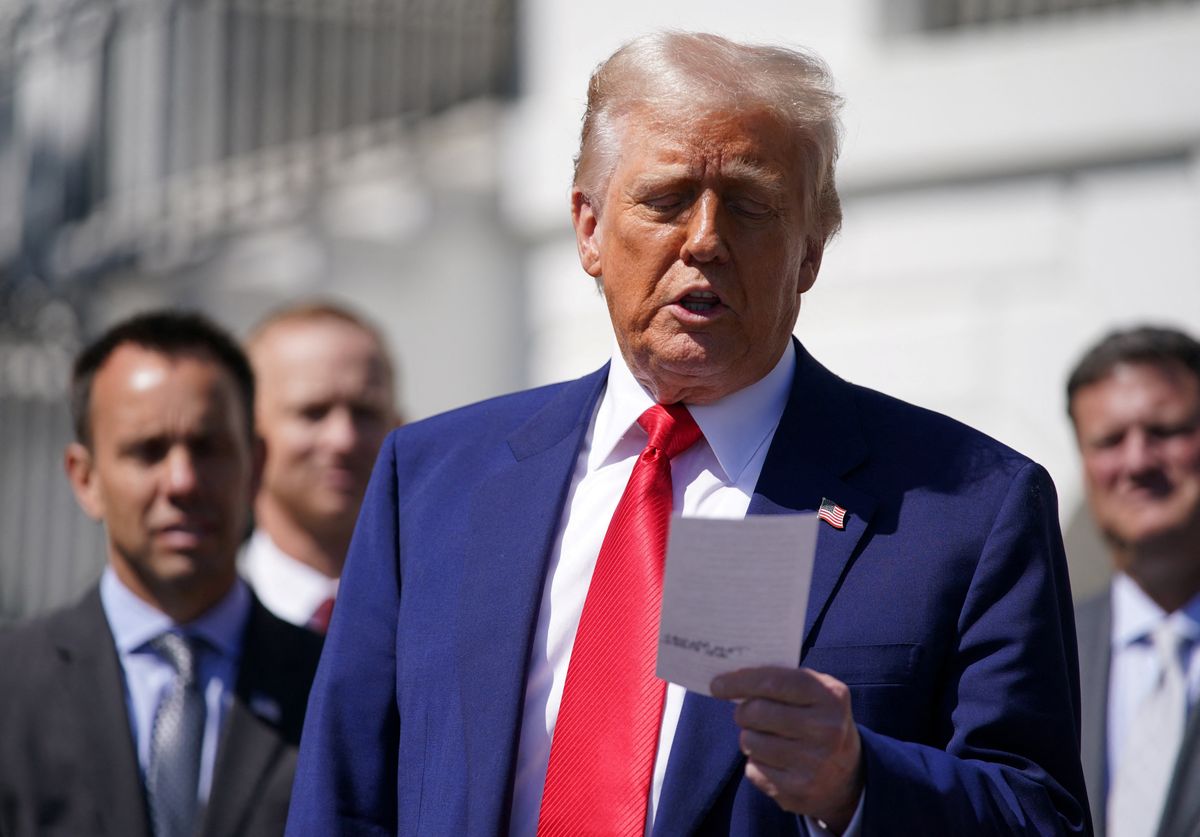
After Trump announced his widely criticized "reciprocal tariffs" policy, which many believe could lead the United States into a recession, he temporarily eased some of his import duties for three months. However, some of Trump's most vocal supporters in the 2024 presidential election are expressing their dissatisfaction, saying this is not what they voted for.
A notable example: billionaire financier Bill Ackman.
Don't believe a word of it, wrote Zeeshan Aleem for MSNBC — they backed Trump knowing this was his platform and simply chose to ignore it.
"The denialism on the right has been remarkable," wrote Aleem. "Some right-wing pundits have argued that the current crisis is a surprise because Trump never presented on the campaign trail this specific — and economically nonsensical — tariff formula for extremely high duties on imports from scores of countries around the world. Business and tech leaders — who showered Trump with money in hopes of favorable treatment — have reportedly been surprised by Trump’s fierce commitment to tariffs."
Meanwhile, even tech tycoon Elon Musk, notorious for his nine-figure spending to get Trump elected, and for his Department of Government Efficiency task force on Trump's behalf, has furiously lobbied against the tariffs behind the scenes and publicly called Trump's trade adviser a "moron."
ALSO READ: 'Promoted our tormenter': MAGA fans vent disgust at Trump official's latest move
For all these people to say they were blindsided is "indefensible," wrote Aleem.
"On the campaign trail last year Trump promoted massive universal tariffs and went as far as to float the idea of replacing income taxes with tariff revenue," wrote Aleem. "At the time, Adam Hersh, a senior economist with Economic Policy Institute Action, told me Trump’s idea was like 'dropping a nuclear bomb on a hurricane.' Hersh calculated at the time that across-the-board tariffs would have to be somewhere around 120% or 130% on incoming goods to make up for the roughly $4.2 trillion in revenue generated through income taxes. With the U.S. set to impose a 104% tariff rate on Chinese goods beginning Wednesday, it’s a bit silly to say none of this was foreseeable."
In truth, Aleem wrote, they just convinced themselves it wasn't going to happen and are now shocked to have been wrong.
"A more honest position might be that a segment of his voters decided that a gamble on tariffs was worth it because they liked other things Trump promised, whether that’s politicizing the Justice Department or treating migrants like they aren’t human or promising fewer regulations on businesses," he concluded. "But they played their cards wrong — and we’re all paying for it."




